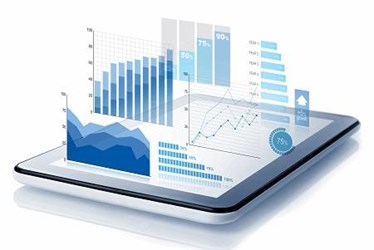The Digitization Of Healthcare Is A One-Way Street

By Cristian Pascual, co-founder and CEO, Mediktor
As a patient, it's about receiving personalized care according to specific needs. Though the healthcare system strives to put the patient on the center, the reality is we're still far away from achieving that outcome.
In fact, healthcare now faces two challenges: improving services to offer better care while reducing costs and optimizing resources. As governments struggle to prevent the escalation of health expenditures, it becomes necessary to develop a more efficient way of delivering healthcare with value for patients. Digitalization may be the answer.
According to the Harvard Business Review, the proportion of American hospitals with EHRs ballooned to 76 percent as of 2014 from just 9 percent in 2008. We now see promising technologies trying to find a place in this complex industry, including telemedicine, artificial intelligence, and machine learning.
You’ve heard of the Internet of Things and Big Data, where profoundly impactful business decisions can be made based on data-based insights from the interconnectivity of countless objects. It’s happening in industries across the world, and it’s happening in healthcare too.
The Path To e-Health
We’ve already started down a path without return toward digitization, and it’s driven just as much by clear benefit to patients as it is necessity for care to improve and thrive. Three primary reasons contribute to this reality:
- the need for a better patient experience, with full access to health information
- the need for more efficiency and resource optimization in health organizations
- the appearance of new technologies that enable new, better, and more effective ways of delivering healthcare
This is already taking shape in many ways, and technology has already made a significant impact. We have medical apps on our phones to book appointments. We can speak to doctors virtually through many telehealth platforms. Doctors can start monitoring the status of patients with chronic diseases in real time and take advantage of Big Data to define prevention policies. We are even starting to see bionic exoskeletons connected to the Internet of Things to help rehabilitate patients with paralysis.
One application where digital healthcare (or e-health) is causing an immediate impact is possibility to assess symptoms in real time through artificial intelligence technologies, natural language recognition, and patient data. Imagine a healthcare solution where a health consumer can utilize their known information, along with symptoms, and access an online list of possible diagnoses with the immediate opportunity to contact a doctor.
And we don’t mean simply Googling a symptom. Patients with potentially threatening illnesses need a more reliable system of instantaneous health assessment. And who among us has not entered a symptom into Google, only to be met with an overwhelming amount of information, much of dubious credibility?
But an intelligent solution, endorsed by the healthcare community, that takes advantage of bountiful health information, to provide real, actionable solutions to patients doesn’t just benefit the healthcare consumer, it gives more credit to one of the main precepts of e-health: putting the patient at the center of a healthcare organization’s strategy.
With a technology like this, healthcare can answer to all patient needs by providing completely personalized, quality service. We can offer fluid communication channels between doctors and patient. We reduce the barriers to access care, speeding up the decision-making process in healthcare for professionals, patients and insurers.
Health Intelligence In Action
With all of this in mind, recent clinical trials carried out in Europe indicate the feasibility of this kind of artificially-intelligent, scientifically-validated health evaluation system.
Mediktor, a solution that helps to identify patient symptoms in real-time, carried out trials with more than 1,500 patients at both the Hospital Clinic in Barcelona, Spain, and Hospital Clinico San Carlos in Madrid. Mediktor uses machine learning techniques to learn from each interaction in improving its results, and has performed over 1.5 million symptom checks in 201 countries around the world. The results of the trials were eye-opening, with the tool demonstrating a 91.3 percent rate of accuracy compared to the final diagnosis by a doctor.
This sort of technology is proof positive that e-Health is the way forward. Through its development and trials, Mediktor’s intuition matches that of a full life experience of 10 physicians and is currently being used to predict the need for admission or surgery during triage which can result in a notable reduction in patient waiting times.
Healthcare around the globe can benefit from e-health technologies — and in many ways, healthcare systems like that in the U.S. can’t afford to deny the outcomes. The healthcare community must eliminate its resistance to change and must boost its investments in new, forward-thinking technology. Because healthcare organizations and companies owe it to the real protagonist of the challenges we face at large: the patient.
